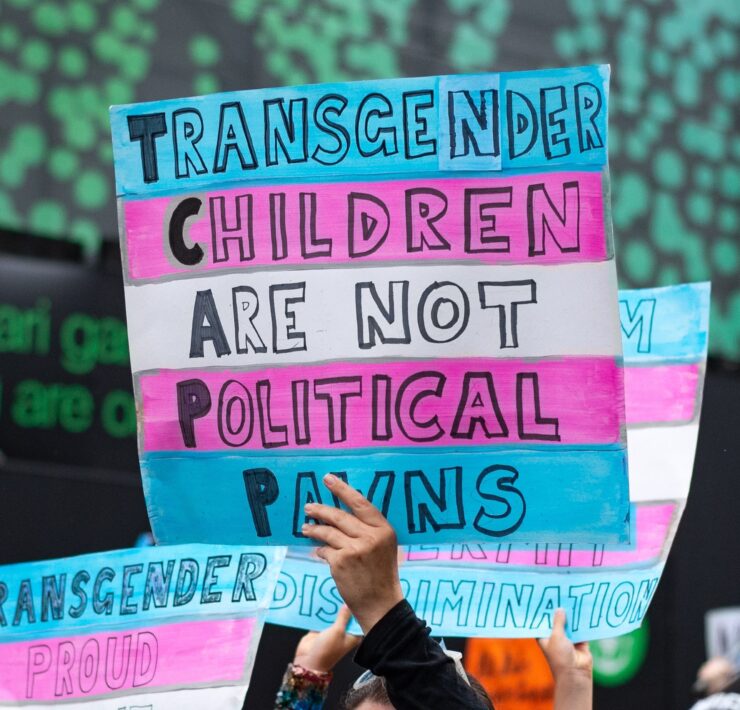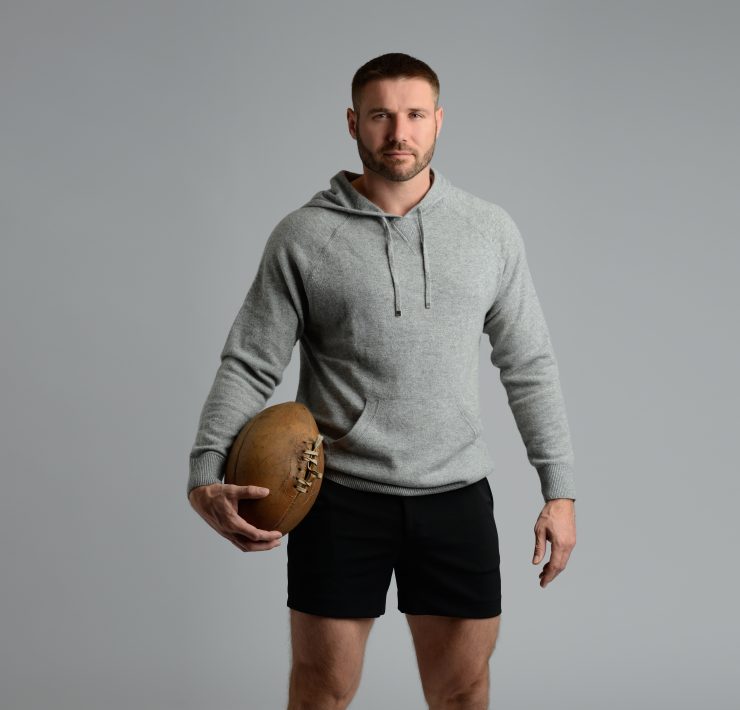Shooting Hoops for Matthew Shepard

Jason Collins, the first openly gay NBA basketball player, talks with Out Front about his struggles in coming out, dealing with “knuckleheads,” and his involvement with the Matthew Shepard Foundation.
13-year NBA veteran Jason Collins was keeping a secret from his friends, from his family, from himself. “For years I was just living in denial, struggling to sleep at night,” he says. “I kept telling myself that, oh, I’ll meet the right girl and everything will change.”
Jason grew up in Los Angeles where he pursued his passion for sports with his twin brother. When they were in 8th grade, Jason and his brother focused on basketball, sharpening their talents on the court in the hopes of one day attending a Division I college.
His hard work, endless practice, and dedication to his craft paid off, as Jason and his brother both ended up at Stanford University, a 10-minute drive from his grandfather who was staying at a Veterans Affairs hospital at the time.
“Before he passed,” says Jason, “my grandfather was able to come to see us play in a lot of games there at Stanford. Plus my great-grandmother, she also was able to see us play.”
Jason was a sophomore at Stanford when he learned of Matthew Shepard’s death. “I, along with many others, will never forget when I heard [Matt’s] story and the horrific way he was killed. Truly horrible. When that happened, it pushed me further into denial and not facing what I was feeling.”
Jason stayed deep in the closet, continuing to focus on schoolwork and basketball. In 2001, he was drafted into the NBA by the New Jersey Nets (now the Brooklyn Nets). It was a dream come true, but a dream blemished by his secret.
 Jason had always dated women and was even engaged at one point. After the engagement fell apart, Jason told friends he was dating a girl who lived in another state and was too busy to visit — a girl who didn’t exist.
Jason had always dated women and was even engaged at one point. After the engagement fell apart, Jason told friends he was dating a girl who lived in another state and was too busy to visit — a girl who didn’t exist.
But living in silence took its toll. During the 2011 NBA lockout, Jason realized he had to be honest with who he was and came out to his aunt Teri who told him she always knew. His twin brother was surprised at the news, but supportive. For the first time in his life, Jason felt comfortable with who he was.
A year later, when Jason was drafted by the Boston Celtics, he purposely picked the number 98 — the same year Matthew Shepard was killed. “It was a private reminder to myself every single game,” says Jason. “That jersey signified this new acceptance that I had with myself and that pride for being a member of the LGBT community.”
In May of 2013, Jason came out publicly with an open letter published in Sports Illustrated. “I didn’t set out to be the first openly gay athlete playing in a major American team sport,” he wrote, “but since I am, I’m happy to start the conversation.”
Judy Shepard read the article and the significance behind the jersey number he wore on the court. “When Judy found out about why I chose the number, she reached out to me and it was amazing. She was so touched. We had a great conversation on the phone.”
And it was during that conversation that Judy provided some insight on how to respond to those who might try to vilify him or other members of the LGBT community.
“Judy gave me some great advice” says Jason. “She said there are always going to be those people who, for whatever reason, are never going to support you. But she said basically to keep living your life and let the haters hate. Keep living your life.”
And that’s exactly what Jason did, as he continued to play basketball in the NBA, this time without the burden of a secret. No longer would his stomach tighten up every time someone asked him about his love life. No longer did he have to lie about an imaginary girlfriend.
“My life is exponentially better,” says Jason. “I don’t have to have that stress of: ‘Oh, is today the day they figure out that I’m gay?’ I was hiding and living with a censor button. No one should have to do that in their private life. No one should have to hide who they are from the people they most love in their life.”
Since coming out, Jason has received tremendous support from his teammates and the NBA, and despite those who claimed his story would be a distraction, Jason emphasizes that it is because of his honesty that the team is stronger. “It unifies the team. They are like a family, and the good ones always respect each other and come together.”
And his story has had a profound impact off the court, too. Since coming out, Jason has attended several Pride events around the nation. It was during one of these events that a young man in his twenties approached Jason.
He shared with Jason that he was still in the closet at work, but that he had come out to his family. The young man’s mother had rejected him for being gay, but when the mother read about Jason Collins’ story, she reached out to her son to renew their relationship.
“Hearing a story like that,” says Jason. “It’s very humbling. There’s no greater bond between mother and her child.”
Even with all the support, Jason knows there will always be bullies. Earlier this year, it was reported that an NBA player from another team was taunting Jason on the basketball court with homophobic slurs.
But Jason shrugged it off, telling the New York Daily News, “He’s a knucklehead. So I just let it go. Again, that goes back to controlling what you can control.”
As Jason moves forward in his career, he continues to take Judy Shepard’s advice to heart. “There have been so many times I’ve come across people who, again, [are] coming from a place of having hate in their heart. I try not to engage with those individuals. It’s a waste of my energy.”
Jason will be a distinguished guest at this year’s Matthew Shepard Foundation Honors Gala taking place on Saturday, October 11 at the Seawell Grand Ballroom located in the Denver Performing Arts Complex.
For tickets and event info, please visit MatthewShepard.org/Honors.
What's Your Reaction?
Greetings. I’m Mike. People call me Mike. I’m just a gay guy trying to be creative before I’m kicked off this spinning, planet-sized spaceship hurdling through the void of space. Writing and photography are the creative outlets I spill my brain into when mental monsters start clawing at the back of my eyes. I only hope these articles provide readers with a few insights I’ve carefully gathered in cupped hands, cracked hands that have dueled for decades with these nebulous shadows that haunt so many lives. Plus, writing is a great way to pass the time on this planet-sized spaceship hurdling through the void of space.









